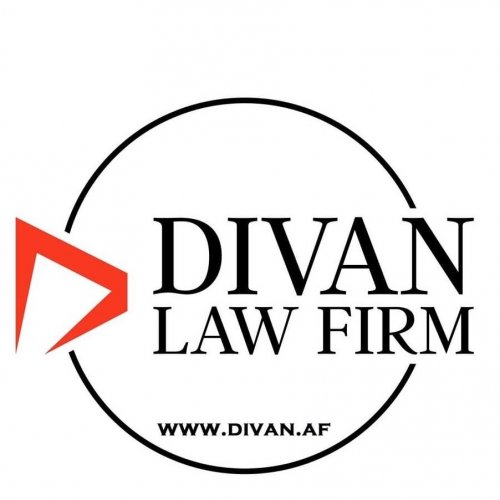Best Adoption Lawyers in Kabul
Share your needs with us, get contacted by law firms.
Free. Takes 2 min.
Free Guide to Hiring a Family Lawyer
List of the best lawyers in Kabul, Afghanistan
About Adoption Law in Kabul, Afghanistan:
Adoption in Kabul, Afghanistan is governed by Islamic law, which can differ significantly from Western legal systems. In Afghanistan, adoption is not seen as creating a new legal relationship between the child and the adoptive parents. Instead, it is often considered a form of guardianship, where the child maintains ties to their biological family. The process of adoption in Kabul can be complex and it is important to seek legal advice to navigate the legal system effectively.
Why You May Need a Lawyer:
You may need a lawyer for adoption in Kabul, Afghanistan in situations such as: - Understanding the legal process of adoption in Kabul - Ensuring all necessary documents are properly prepared and filed - Representing you in court during adoption proceedings - Negotiating with birth parents or guardians for consent - Resolving any legal issues that may arise during the adoption process
Local Laws Overview:
In Kabul, Afghanistan, adoption is primarily governed by Islamic law, which places emphasis on the welfare of the child and maintaining familial ties. The legal process of adoption can vary depending on the region in Afghanistan, so it is important to consult with a lawyer who is knowledgeable about local laws and customs. Additionally, adoption laws in Kabul may require consent from the child's biological parents or guardians, and may involve a court process to finalize the adoption.
Frequently Asked Questions:
Q: Is adoption legal in Kabul, Afghanistan?
A: Yes, adoption is legal in Kabul, Afghanistan, but the process and requirements may differ from other countries.
Q: Do I need to be Muslim to adopt in Kabul, Afghanistan?
A: While being Muslim may be beneficial, it is not a strict requirement for adoption in Kabul. It is important to consult with a local lawyer for guidance on this matter.
Q: What documents are needed for adoption in Kabul, Afghanistan?
A: Documents such as birth certificates, marriage certificates, and consent forms from biological parents or guardians may be required for adoption in Kabul.
Q: How long does the adoption process take in Kabul, Afghanistan?
A: The adoption process in Kabul can vary in length depending on various factors, including the complexity of the case and court availability.
Q: Can foreigners adopt in Kabul, Afghanistan?
A: Foreigners may be able to adopt in Kabul, Afghanistan, but there may be additional requirements and restrictions for international adoptions.
Q: What rights do adoptive parents have in Kabul, Afghanistan?
A: Adoptive parents in Kabul have legal responsibilities and rights towards the child they adopt, including financial support, care, and protection.
Q: Can a single person adopt in Kabul, Afghanistan?
A: Single individuals may be able to adopt in Kabul, Afghanistan, but there may be legal restrictions or requirements for single parent adoptions.
Q: What is the role of the biological parents in the adoption process in Kabul, Afghanistan?
A: Biological parents or guardians may need to provide consent for the adoption to proceed in Kabul, Afghanistan. Their rights and involvement in the process may vary based on the circumstances.
Q: Can a child be adopted without the consent of the biological parents in Kabul, Afghanistan?
A: In most cases, the consent of the biological parents or guardians is required for adoption in Kabul, Afghanistan. However, there may be exceptions in certain circumstances.
Q: What happens after the adoption is finalized in Kabul, Afghanistan?
A: After the adoption is finalized in Kabul, the adoptive parents assume legal responsibility for the child and the child becomes a legal member of the adoptive family.
Additional Resources:
For more information on adoption in Kabul, Afghanistan, you can contact the Ministry of Labor, Social Affairs, Martyrs, and Disabled (MOLSAMD). Additionally, seeking guidance from legal aid organizations or local adoption agencies can be beneficial in understanding the adoption process.
Next Steps:
If you are considering adoption in Kabul, Afghanistan and need legal assistance, it is advisable to consult with a qualified lawyer who has experience in adoption law. A lawyer can guide you through the legal process, ensure all necessary documents are in order, and represent your interests in court proceedings.
Lawzana helps you find the best lawyers and law firms in Kabul through a curated and pre-screened list of qualified legal professionals. Our platform offers rankings and detailed profiles of attorneys and law firms, allowing you to compare based on practice areas, including Adoption, experience, and client feedback.
Each profile includes a description of the firm's areas of practice, client reviews, team members and partners, year of establishment, spoken languages, office locations, contact information, social media presence, and any published articles or resources. Most firms on our platform speak English and are experienced in both local and international legal matters.
Get a quote from top-rated law firms in Kabul, Afghanistan — quickly, securely, and without unnecessary hassle.
Disclaimer:
The information provided on this page is for general informational purposes only and does not constitute legal advice. While we strive to ensure the accuracy and relevance of the content, legal information may change over time, and interpretations of the law can vary. You should always consult with a qualified legal professional for advice specific to your situation.
We disclaim all liability for actions taken or not taken based on the content of this page. If you believe any information is incorrect or outdated, please contact us, and we will review and update it where appropriate.








